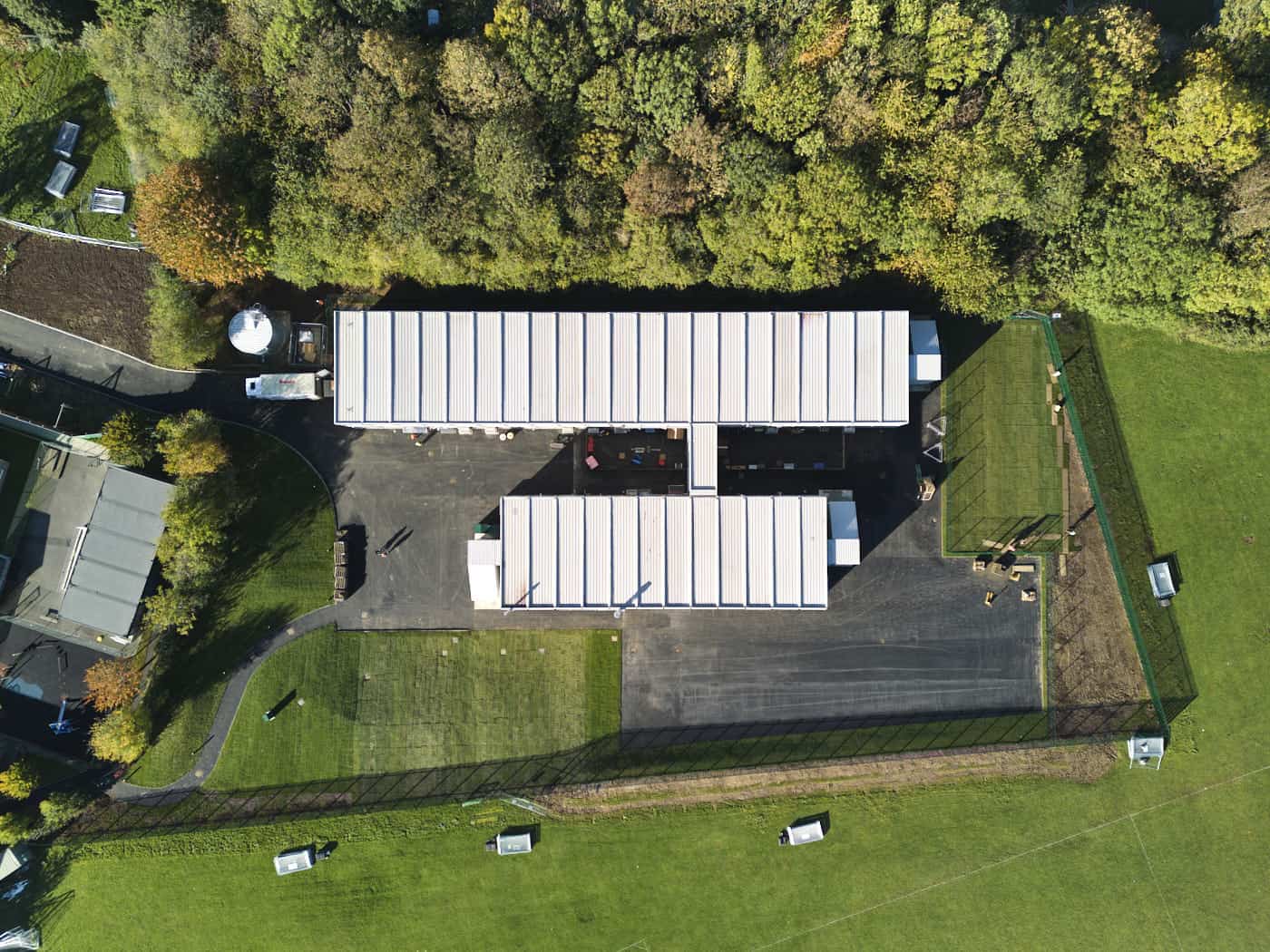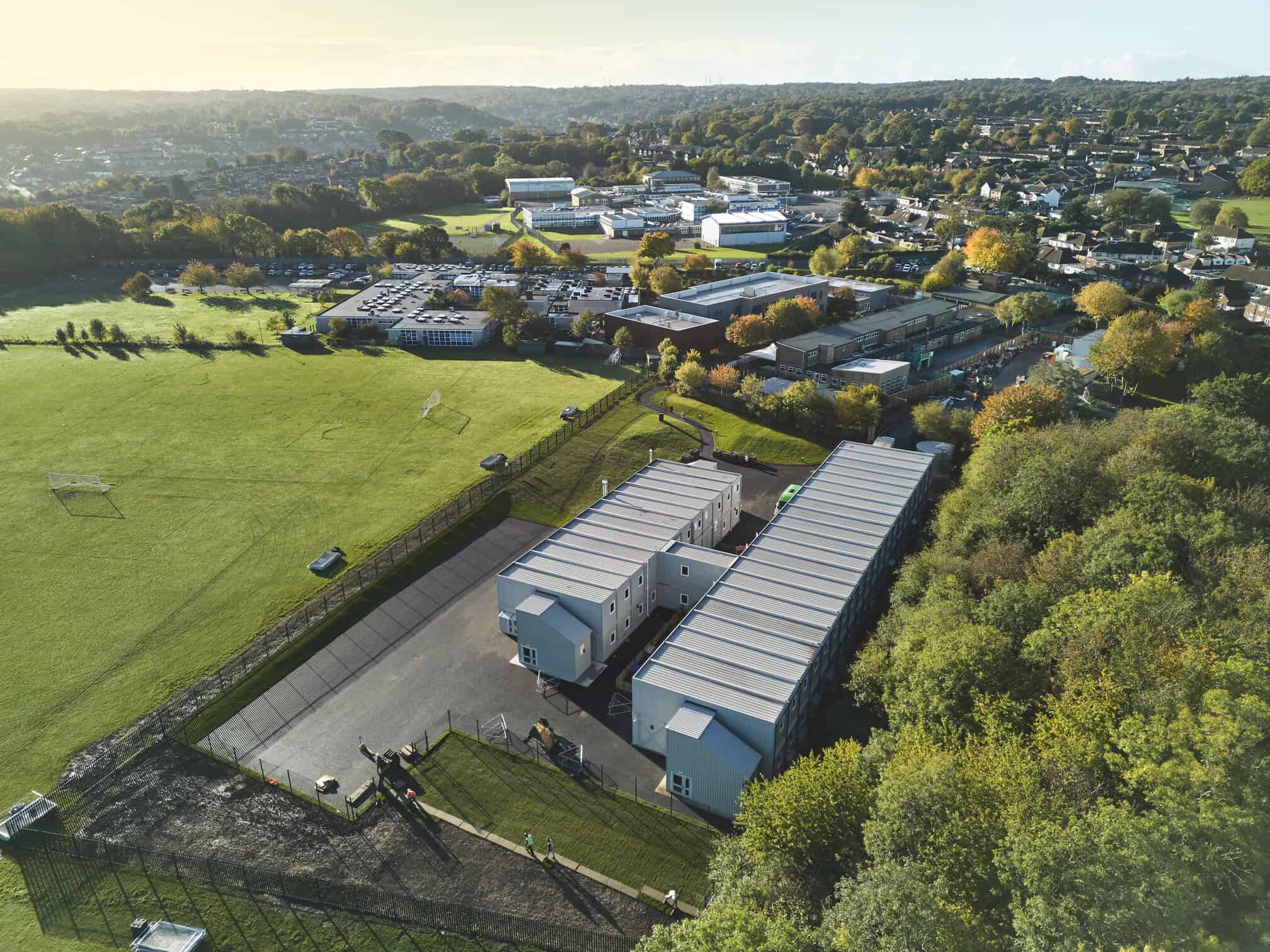The move towards a circular economy is critical if the country is to achieve its Net Zero goals. With the construction industry generating 62% of the UK’s waste, it must lead the way in closing the circular economy loop.
A circular economy is a system in which materials never become waste, as they’re kept in circulation through maintenance, reuse and recycling. By creating less waste, there is less need for newer materials, reducing the use of precious finite resources.
In order to close the loop in the construction industry, five key areas need to be considered from the start of any project:
1. Adaptable design
When designing your building, it’s important to consider how its use may change over time. For example, as a community’s age demographic changes, a healthcare facility is likely to require adjustments to cater for evolving needs. By utilising a flexible, modular healthcare solution, NHS Trusts can design rooms that adhere to a standard dimension for easy modification and repurposing, allowing them to be easily reconfigured or expanded without any waste.
2. Circular materials
Choosing the right materials during the design stage is crucial to ensure that your building meets its intended specification without compromising on fulfilling a circular economy. For example, for Hills Road Sixth Form College’s newest building, Premier Modular provided façades that were not only aesthetically pleasing, but were made from recycled products to achieve a BREEAM ‘Excellent’ building.
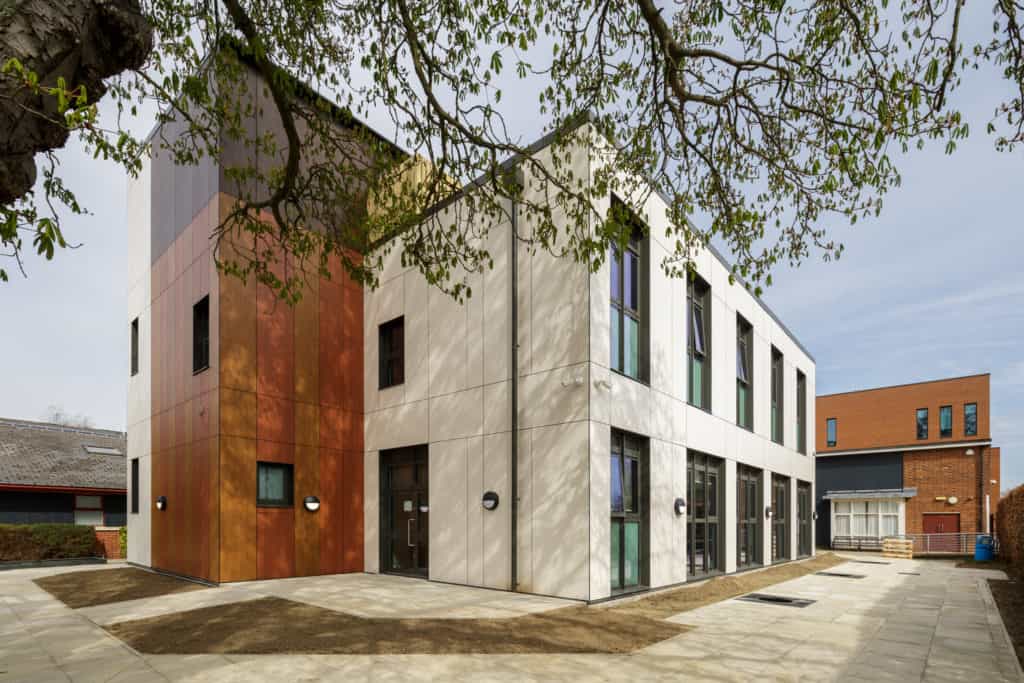
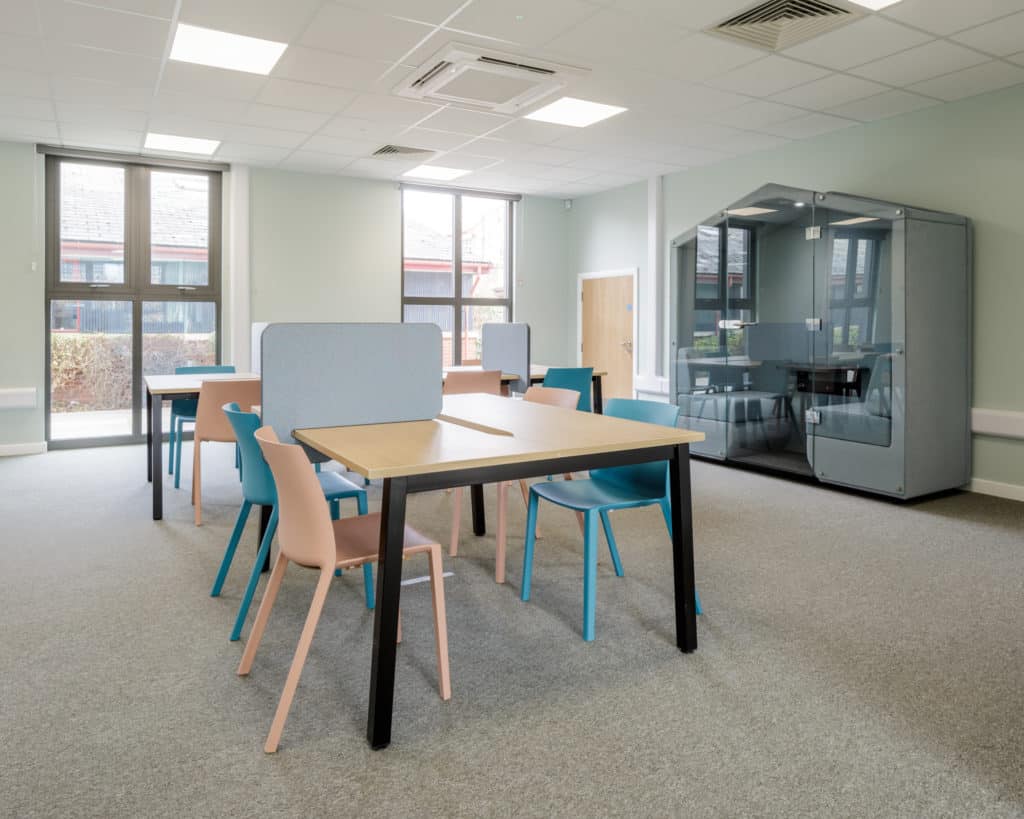
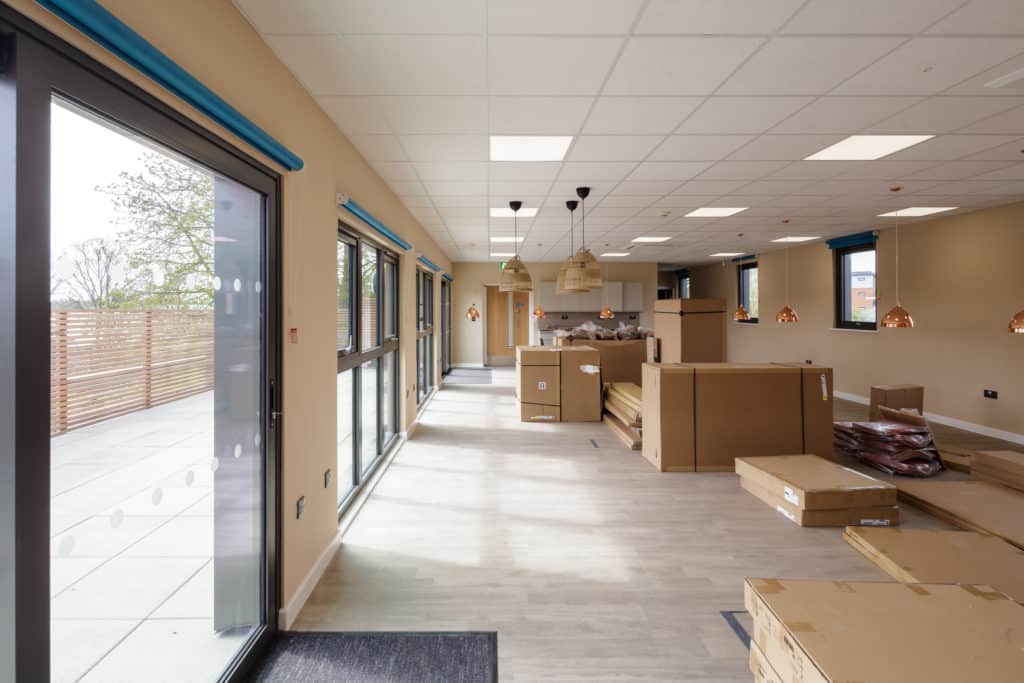
3. Waste management
It’s important to engage with minimising waste at every stage of your project, from design and material choice to manufacturing and onsite activity. Modular construction creates less waste through its standard practices, using prefabricated elements to reduce site waste. At Premier Modular, we take this one step further, using lean manufacturing processes and initiatives to recycle unavoidable waste: achieving zero waste to landfill across all of our factories.
4. The life cycle
Life Cycle Assessments (LCA) can be used to understand the environmental impact the materials and construction processes your project might have from cradle to grave. These assessments enable comparative exercises that will inform decision making, allowing choices to be made that will minimise negative impacts on the environment.
When considering the lifetime impact of a building, rental modular buildings offer a uniquely sustainable, circular option. Fully recyclable and able to be repurposed infinitely throughout their life, these buildings make a significant impact on any project using minimal resources.
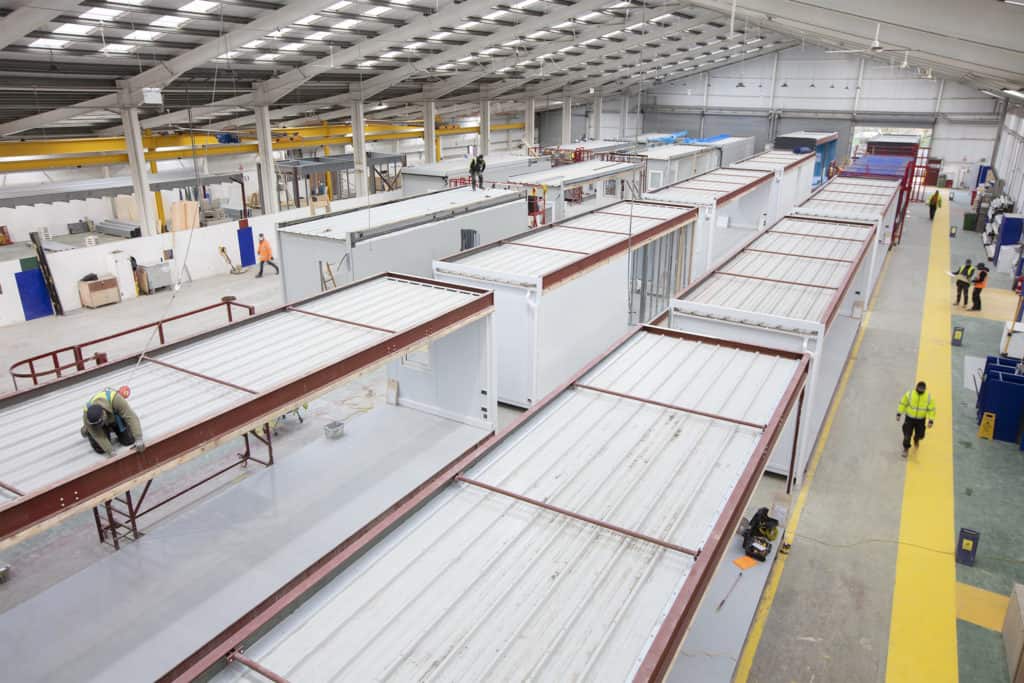
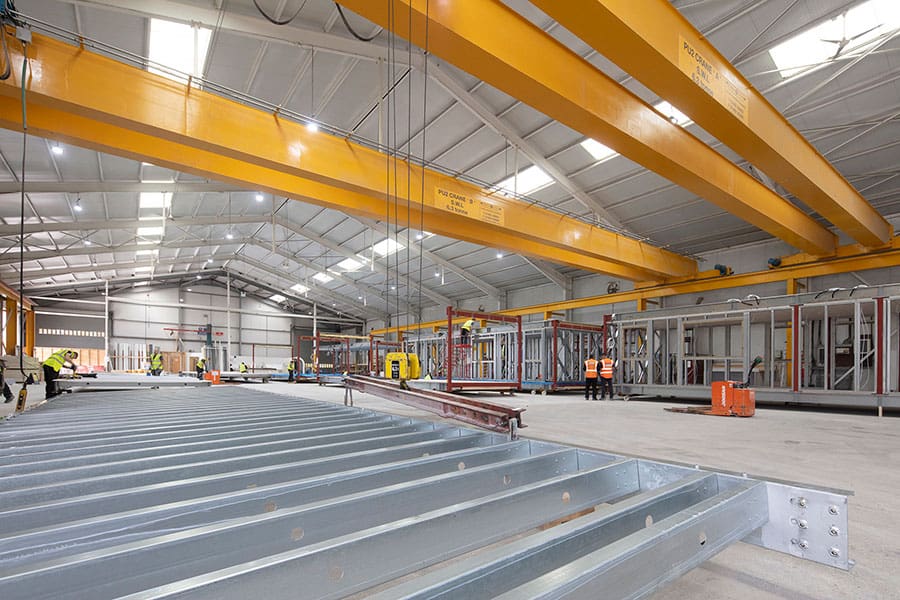
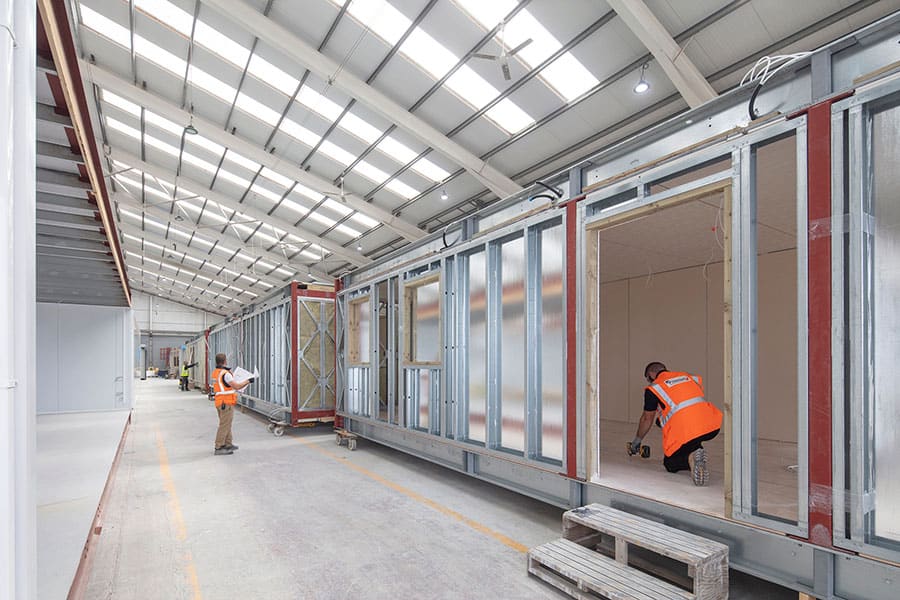
5. Innovation over tradition
When looking to create a building that fulfils a circular economy, new processes and products will be required. The concept of circularity within the industry may be in its infancy, but if we know one thing it’s that staying in your construction comfort zone makes achieving your sustainability goals less likely.
That’s where an industry expert comes in. By partnering with a provider who walks the walk, daunting innovative processes become exciting and easy to understand, helping your business to achieve a circular economy without the risk.
Implementing these five areas into your next project from the start will significantly contribute to closing the loop on your next building: reducing its environmental impact and promoting sustainability as a lived value within your business.
At Premier Modular, we’ve got the experience to help you to close the loop. Explore our portfolio of permanent and rental projects to find out more or contact one of our experts today.

